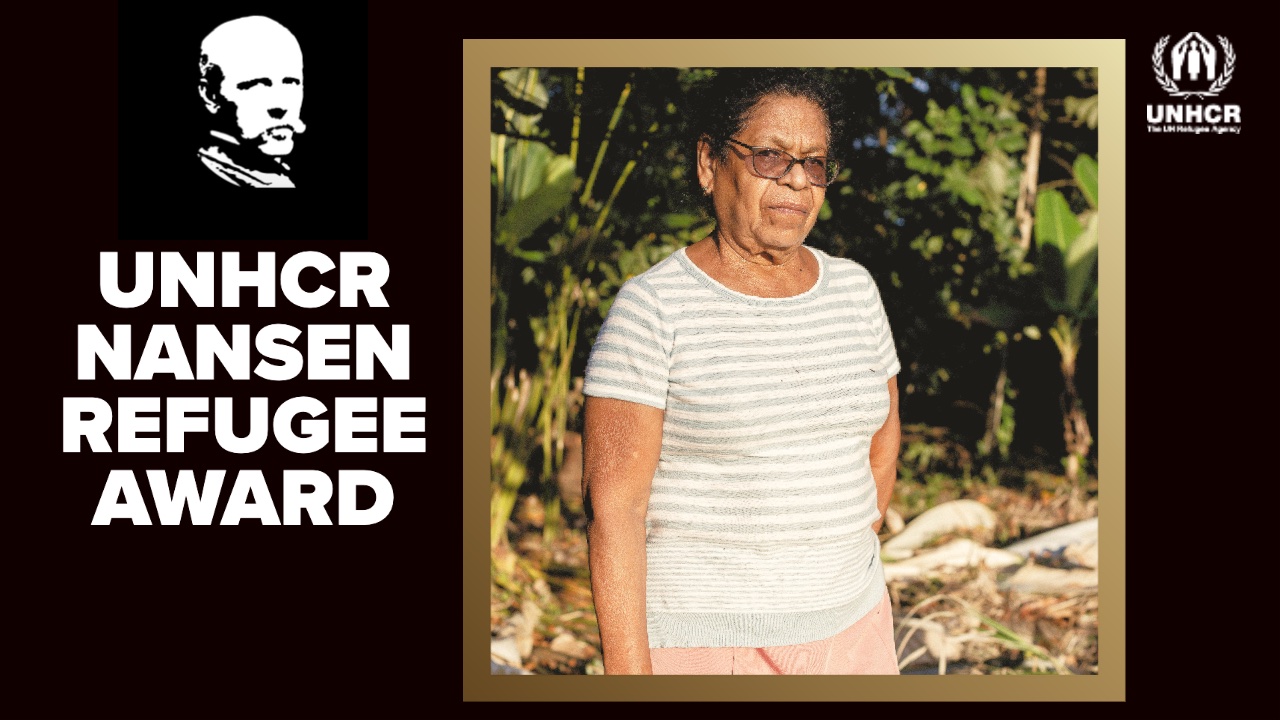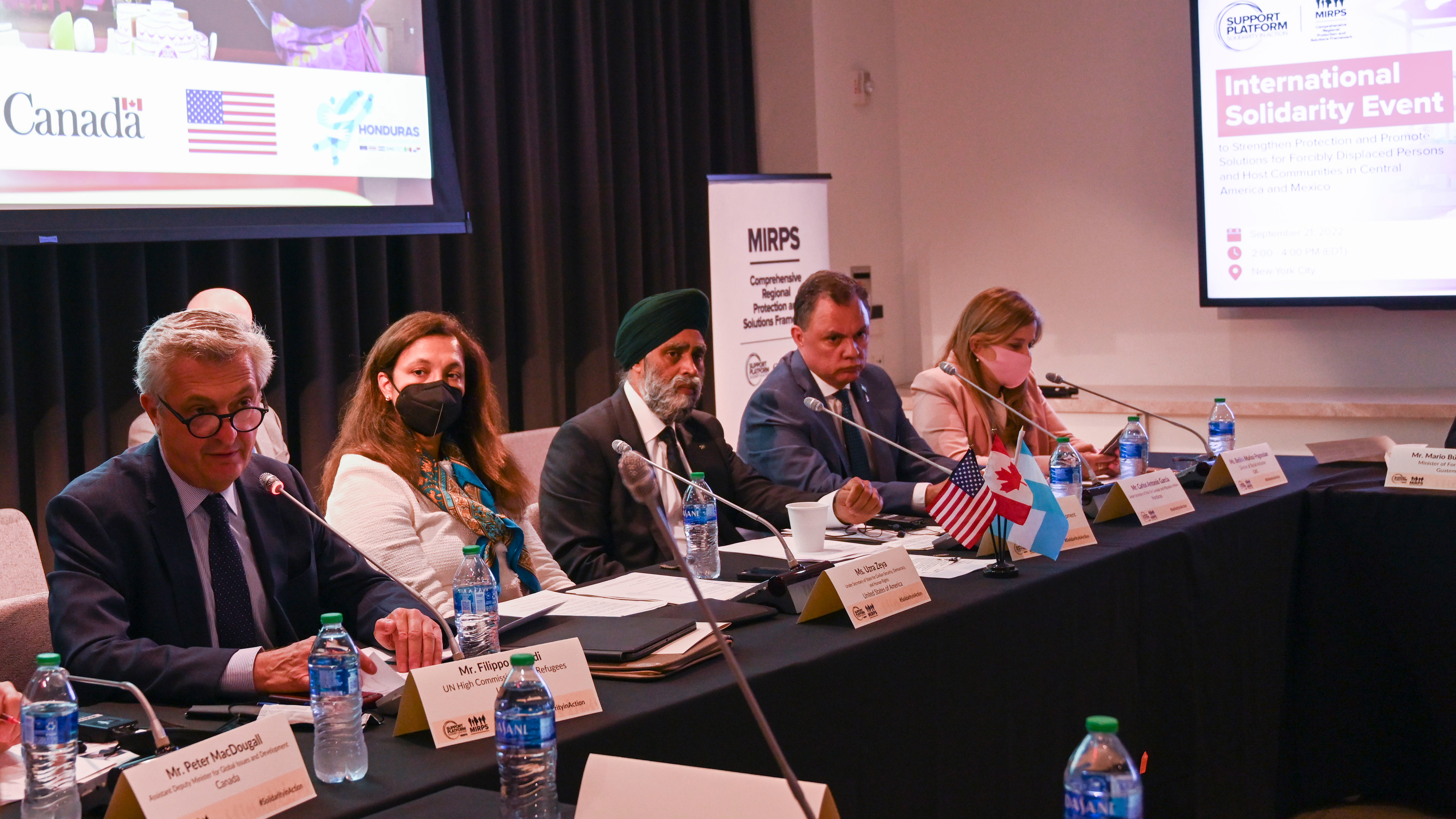Refugees to help local development in Zambia project
Refugees to help local development in Zambia project

Improving infrastructure at the Myukwayukwa settlement in the Western Province of Zambia.
LUSAKA, Zambia, May 7 (UNHCR) - An ambitious project is underway in Zambia to integrate refugees into their host community while helping the local region to develop, said UNHCR in a report issued recently.
The Zambia Initiative, proposed by the Zambian government with the support of UNHCR and several donors, is a holistic approach aimed at linking development to relief assistance and addressing both the needs of refugees and the host population. The blueprint for this was released in a recent report on a donors' mission to Lusaka, Zambia that occurred in March.
Among its many aims, the initiative seeks to change the perception that refugees are a burden to their host communities. "We never thought that refugees could be agents of development," said a local chief. "We thought they were just here to cut our trees and use our water."
Health issues such as polio, which had been eradicated from Zambia, emerged again because of the presence of refugees. At the same time, the local population also benefited from new breeds of cattle and new seeds brought in from Angola by refugees.
The initial pilot project is focusing on the Western Province of Zambia, an area with a long history of hosting refugees. The region is home to the Nangweshi refugee camp and the Myukwayukwa settlement, and still faces continued refugee inflows from Angola. The number of refugees in the Western Province is estimated at 150,000, including a number of spontaneously-settled refugees.
"In terms of human development indicators, refugee-impacted areas, particularly those in the Western Province, are the least developed compared to the rest of the country," said Zambian Minister of Home Affairs Lackson M. Mapushi.
The region faces challenging conditions, including the annual flooding of the Zambezi river plains and poor rural infrastructure. But it also presents great potential, with immense alluvial plains providing resources for cattle grazing, irrigated crop production or fishing.
Refugees are expected to be "agents of development" by contributing to the local economy. For instance, many refugees in Zambia have been allocated enough land to enable them to produce export-quantities of sweet potatoes, thus bringing much-needed foreign currency into the country.

In January last year, the then Assistant High Commissioner for refugees, Søren Jessen-Petersen, visited Zambia and discussed the possibility of UNHCR playing a catalytic role in encouraging donors and development agencies to contribute to the development of infrastructure in refugee-hosting communities.
A donor mission was fielded to Zambia in March this year, at the invitation of the government and supported by UNHCR, to identify priorities for donor co-operation.
A total of seven donor countries and organisations took part in this mission, which involved field visits and discussions with national and local authorities, as well as with hosting communities and refugees.
Concrete proposals for initially small-scale projects were put forward to them in four major sectors - agriculture, health care, education and infrastructure. The first proposed projects will represent an investment of US$5 million. Donors are now expected to provide small grants quickly to jump-start the initiative, allowing some of the projects to start as early as this year.
The initiative's first quarterly review report will be issued by June 30, by which time the co-operating partners will revert with indications, interests, commitments or pledges for mid- and long-term projects.
The Zambia Initiative has the advantage of addressing both issues of durable solutions for refugees and burden-sharing with their host communities. It will facilitate the local integration of refugees and accord high priority to the development of refugee-hosting areas. It will also safeguard and improve the quality of the asylum system, since Zambia is considered a model in this regard.
The country is host to some 292,000 refugees, mainly from Angola and the Congo (DRC). It is one of the countries in Africa with the longest history of hosting refugees, some of them having fled Angola at the early stages of the independence war in 1966. Since then, many refugee children have been born on its soil; many speak the local language and have picked up local cultural habits.
In this context, Zambia has indicated that a greater freedom of movement would be allowed for refugees outside the refugee camps or settlements. Some of the long-standing refugees would also be considered for naturalisation.








